(in order of presentation)
Chito Gascon (Philippines)
Undersecretary of the Political Affairs, Republic of the Philippines/ President, LIBERTAS (Lawyers’ League for Liberty)
 Mr. Gascon is a lawyer, political activist and social reformer. Currently, he works as the undersecretary of the president’s office of the Philipino government. In the 1980s, he was a leader of the student union at the University of the Philippines and became a fighter for the “People Power Revolution”. He served as the youngest member to draft the Philippine Constitution and as a member of the Philippine Government’s negotiating panel in peace talks with the National Democratic Front. He has been engaged in advocacy work concerning the right to dispense justice, political and electoral reforms, conflict resolution and human rights.
Mr. Gascon is a lawyer, political activist and social reformer. Currently, he works as the undersecretary of the president’s office of the Philipino government. In the 1980s, he was a leader of the student union at the University of the Philippines and became a fighter for the “People Power Revolution”. He served as the youngest member to draft the Philippine Constitution and as a member of the Philippine Government’s negotiating panel in peace talks with the National Democratic Front. He has been engaged in advocacy work concerning the right to dispense justice, political and electoral reforms, conflict resolution and human rights.
Imtiaz Gul (Pakistan)
Executive Director, Centre for Research and Security Studies
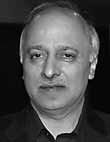 Mr. Gul is currently the Executive Director of the Islamabad-based independent Centre for Research and Security Studies that he founded in December 2007. As a journalist, he has been reporting for various media such as Deutsche Welle, CNN, NHK, and Al-Jazeera. He also regularly writes for Foreign Policy and Wall Street Journal, on the military conflict around the border to Afghanistan and Pakistan-India relations. His most recent book is Pakistan: Before and After Osama bin Laden (Roli Books, India) published in fall 2012.
Mr. Gul is currently the Executive Director of the Islamabad-based independent Centre for Research and Security Studies that he founded in December 2007. As a journalist, he has been reporting for various media such as Deutsche Welle, CNN, NHK, and Al-Jazeera. He also regularly writes for Foreign Policy and Wall Street Journal, on the military conflict around the border to Afghanistan and Pakistan-India relations. His most recent book is Pakistan: Before and After Osama bin Laden (Roli Books, India) published in fall 2012.
Vinod Raina (India)
Work with the educational movement Bharat Gyan Vigyan Samiti (BGVS)
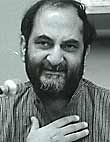 Dr. Raina has a Ph.D. in theoretical physics. He resigned his job at Delhi University to work full-time for the education of deprived children. He is deeply involved in rights based work—Right to Education, Right to Food. He also works on science-society issues such as the Bhopal gas disaster, Narmada dams, and nuclear energy. He is part of the People’s Science Movement in India which looks for people-based solutions to issues such as water, food, energy, and climate change.
Dr. Raina has a Ph.D. in theoretical physics. He resigned his job at Delhi University to work full-time for the education of deprived children. He is deeply involved in rights based work—Right to Education, Right to Food. He also works on science-society issues such as the Bhopal gas disaster, Narmada dams, and nuclear energy. He is part of the People’s Science Movement in India which looks for people-based solutions to issues such as water, food, energy, and climate change.
Huang Ping (China)
Professor, Director General, Institute of American Studies,
Chinese Academy of Social Sciences (CASS)
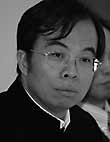 Having received his Ph.D. from LSE, University of London, Dr. Huang is an internationally acclaimed sociologist. As an erudite scholar, he has written numerous books and papers in the field of social sciences. In his empirical studies of contemporary Chinese society, he attempts to re-examine the validity of Western conceptional frameworks in the social sciences. Through various UN-related activities, he explores the application and implementation of theoretical studies and research into action. He also serves as President of the Chinese Association of American Studies.
Having received his Ph.D. from LSE, University of London, Dr. Huang is an internationally acclaimed sociologist. As an erudite scholar, he has written numerous books and papers in the field of social sciences. In his empirical studies of contemporary Chinese society, he attempts to re-examine the validity of Western conceptional frameworks in the social sciences. Through various UN-related activities, he explores the application and implementation of theoretical studies and research into action. He also serves as President of the Chinese Association of American Studies.
Lee Seejae (Korea)
Co-President, The Korea Federation for Environmental Movement
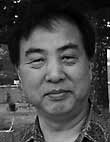 Educated as a sociologist at Seoul National University (B.A.) and the University of Tokyo (MA and Ph.D.), Japan, Dr. Lee teaches sociology at Catholic University of Korea. He has participated in the environmental movement from the early 1990s and worked on anti-desertification in China. Currently, he focuses on the emerging civil society in China and functions of neighborhood organizations in urban Japan. He is involved in the Environmental Research Committee of the International Sociological Association, the East Asian Sociologists’ Symposium (annual), and the East Asian Environmental Sociologists’ Conference.
Educated as a sociologist at Seoul National University (B.A.) and the University of Tokyo (MA and Ph.D.), Japan, Dr. Lee teaches sociology at Catholic University of Korea. He has participated in the environmental movement from the early 1990s and worked on anti-desertification in China. Currently, he focuses on the emerging civil society in China and functions of neighborhood organizations in urban Japan. He is involved in the Environmental Research Committee of the International Sociological Association, the East Asian Sociologists’ Symposium (annual), and the East Asian Environmental Sociologists’ Conference.
Huang Jiansheng (China)
Professor of Social Anthropology, Yunnan Provincial Institute of Ethnic Researches, Yunnan University of Nationalities
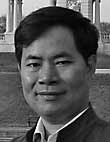 Dr. Huang is currently director of Social Impact Assessment & Monitoring Yunnan and director of Southeast Asia Ethnic Studies at Yunnan University of Nationalities. He is one of the Dai peoples, an ethnic minority in China. He was the Chinese representative of “Education Policy and Sustainable Community Development,” and the team leader of “Targeted Capacity Building for Mainstreaming Indigenous Peoples Concerns in Development.” He was also a national consultant for several Asian Development Bank and World-Bank-supported social impact assessment projects.
Dr. Huang is currently director of Social Impact Assessment & Monitoring Yunnan and director of Southeast Asia Ethnic Studies at Yunnan University of Nationalities. He is one of the Dai peoples, an ethnic minority in China. He was the Chinese representative of “Education Policy and Sustainable Community Development,” and the team leader of “Targeted Capacity Building for Mainstreaming Indigenous Peoples Concerns in Development.” He was also a national consultant for several Asian Development Bank and World-Bank-supported social impact assessment projects.
Ohashi Masaaki (Japan)
Chairperson, Japan NGO Center for International Cooperation (JANIC)
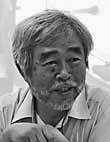 Professor Ohashi worked with Shapla Neer: Citizens’ Committee in Japan for Overseas Support in the 1980s. He was the Director of Shapla Neer’s operations in Bangladesh and acted as Secretary General. He became Deputy Head of Delegation and Development Delegate in Bangladesh for the International Federation of Red Cross and Red Crescent Societies. He is also Professor of Development Studies at Keisen University. Currently as a chairperson of JANIC, he is involved in the relief effort for the victims of the March 11 earthquake and the Fukushima Nuclear Power Plant accident.
Professor Ohashi worked with Shapla Neer: Citizens’ Committee in Japan for Overseas Support in the 1980s. He was the Director of Shapla Neer’s operations in Bangladesh and acted as Secretary General. He became Deputy Head of Delegation and Development Delegate in Bangladesh for the International Federation of Red Cross and Red Crescent Societies. He is also Professor of Development Studies at Keisen University. Currently as a chairperson of JANIC, he is involved in the relief effort for the victims of the March 11 earthquake and the Fukushima Nuclear Power Plant accident.
Marco Kusumawijaya (Indonesia)
Director, Rujak Center for Urban Studies
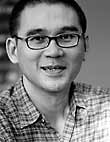 Mr. Kusumawijaya is an architect by training and one of Indonesia’s most renowned intellectuals. He has been working as a professional and activist in the fields of architecture, environment, arts, cultural heritage, urban planning and development. He is focusing his thought and practice on sustainable approaches to urbanism and architecture, and the social changes required towards sustainability. His experiences include an award-winning project of community-driven reconstruction of twenty-three villages in post-tsunami Aceh.
Mr. Kusumawijaya is an architect by training and one of Indonesia’s most renowned intellectuals. He has been working as a professional and activist in the fields of architecture, environment, arts, cultural heritage, urban planning and development. He is focusing his thought and practice on sustainable approaches to urbanism and architecture, and the social changes required towards sustainability. His experiences include an award-winning project of community-driven reconstruction of twenty-three villages in post-tsunami Aceh.
Diana Wong (Malaysia)
Former Deputy Director, Institute of Southeast Asian Studies, Singapore
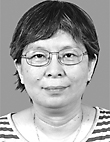 Dr. Wong has coordinated numerous research cooperation and networking among researchers in Southeast Asian countries. Also, as a cultural anthropologist, she has made considerable achievements over years and approached various problems from the perspective of the week, such as women, immigrant workers, and refugees. Her publications include “Looking for a life”: Rohingya refugee migration in the post-imperial age,” in Malini Sur and Barak Kabir (eds), Illegal but Licit: Transnational Flows and Permissive Polities in Asia (Amsterdam University Press, 2012).
Dr. Wong has coordinated numerous research cooperation and networking among researchers in Southeast Asian countries. Also, as a cultural anthropologist, she has made considerable achievements over years and approached various problems from the perspective of the week, such as women, immigrant workers, and refugees. Her publications include “Looking for a life”: Rohingya refugee migration in the post-imperial age,” in Malini Sur and Barak Kabir (eds), Illegal but Licit: Transnational Flows and Permissive Polities in Asia (Amsterdam University Press, 2012).
Chandra Kishor Lal (Nepal)
Independent Columnist and Commentator
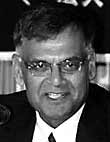 A leading political commentator in Nepal, Mr. Lal is currently a columnist for Republica and Nagarik Dainik newspapers and the Himal Southasian monthly magazine published from Kathmandu. He reads and writes in four languages—Maithili, Nepali, Hindi and English—and is widely known by the public through his publications and appearances on radio and television in South Asia. In 2006, he was voted the most influential columnist in Nepal. His book Human Rights, Democracy and Governance in South Asia was published in 2010 (Pearson, New Delhi).
A leading political commentator in Nepal, Mr. Lal is currently a columnist for Republica and Nagarik Dainik newspapers and the Himal Southasian monthly magazine published from Kathmandu. He reads and writes in four languages—Maithili, Nepali, Hindi and English—and is widely known by the public through his publications and appearances on radio and television in South Asia. In 2006, he was voted the most influential columnist in Nepal. His book Human Rights, Democracy and Governance in South Asia was published in 2010 (Pearson, New Delhi).
Fouzia Saeed (Pakistan)
Director, Mehergarh
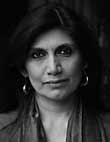 Dr. Saeed is well known in activist circles of Pakistan’s social movement, having worked for decades on women’s issues, especially those linked to violence against women, women’s mobility and sexual harassment. She founded the first women’s crisis center in Pakistan in 1991.An urgency to work on anti-Talibanization has moved her to be a part of a nationwide movement against this vicious process. Following Aung San Suu Kyi, Dr. Fouzia received the 2012 Battle of Crete Award, an award given to a woman since 2011 in recognition of her valiant action for freedom and democracy.
Dr. Saeed is well known in activist circles of Pakistan’s social movement, having worked for decades on women’s issues, especially those linked to violence against women, women’s mobility and sexual harassment. She founded the first women’s crisis center in Pakistan in 1991.An urgency to work on anti-Talibanization has moved her to be a part of a nationwide movement against this vicious process. Following Aung San Suu Kyi, Dr. Fouzia received the 2012 Battle of Crete Award, an award given to a woman since 2011 in recognition of her valiant action for freedom and democracy.
Goenawan Mohamad (Indonesia)
Founder of Tempo magazine/Steering committee member, Komunitas Salihara
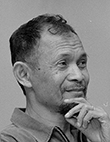 Mr. Mohamad is a journalist, poet, art critic, and activist. He is famous as the founder and former editor-in-chief of Tempo magazine. He is well respected in civil society in Indonesia as a champion and advocate of people’s rights. He has published several volumes of essays and poetry. He currently works as a steering committee member of Komunitas Salihara, the first private multidisciplinary arts center in Indonesia.
Mr. Mohamad is a journalist, poet, art critic, and activist. He is famous as the founder and former editor-in-chief of Tempo magazine. He is well respected in civil society in Indonesia as a champion and advocate of people’s rights. He has published several volumes of essays and poetry. He currently works as a steering committee member of Komunitas Salihara, the first private multidisciplinary arts center in Indonesia.